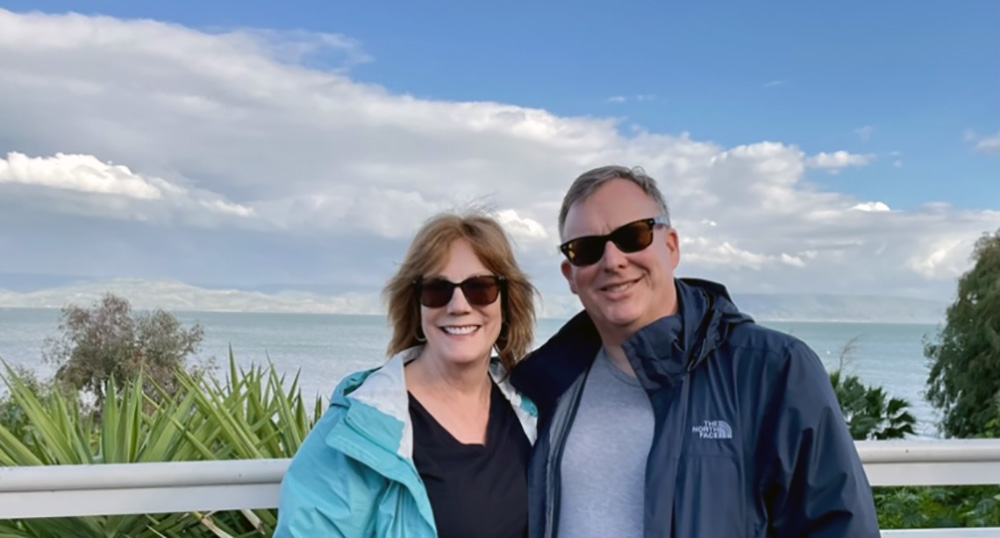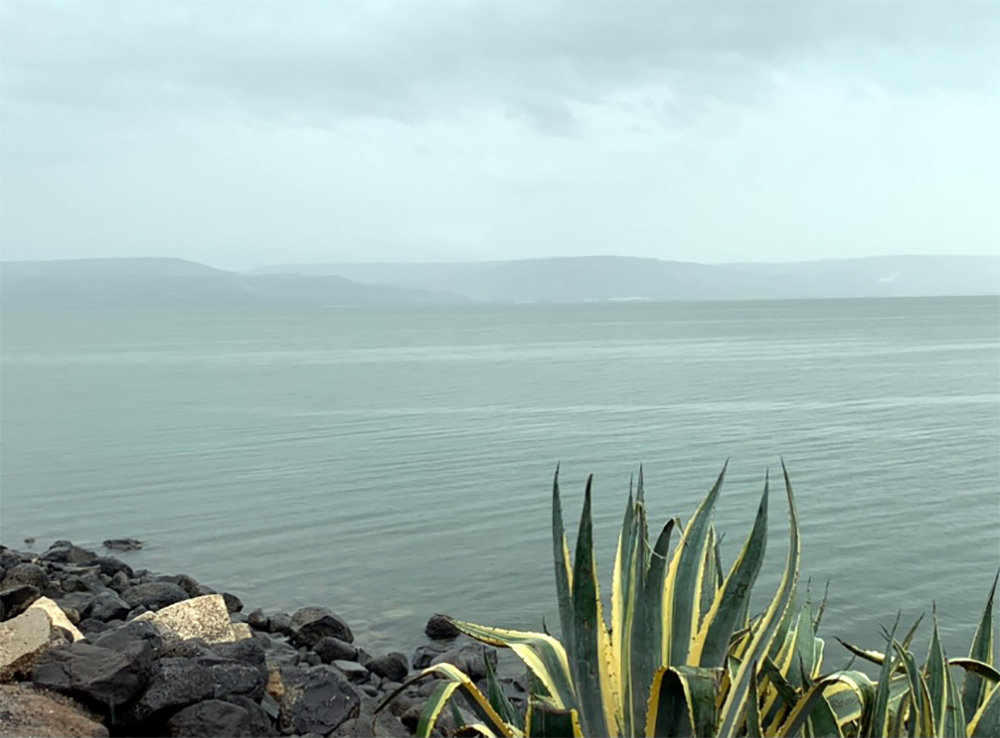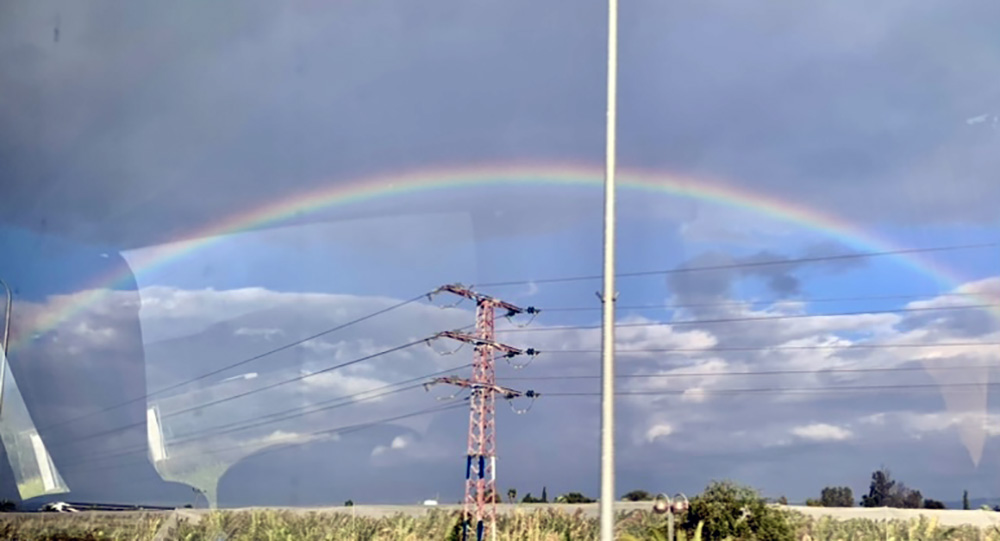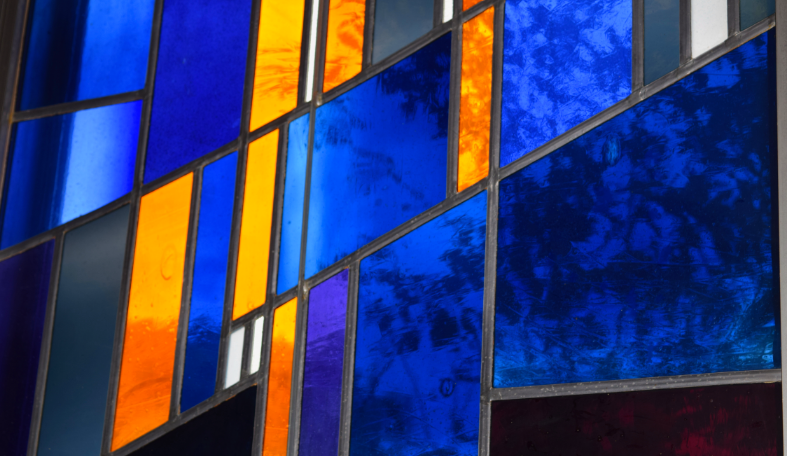The first night of the course, our leader, Rodney Aist, in his introductory lecture on pilgrimage, cited the following quote by Mark Twain: “We do not think in the Holy place, we think in bed, afterwards.” In other words, we don’t know how we’ve changed until later. This quote spoke to me, as I had no expectations that I should be profoundly moved or not by any specific destination or site on the pilgrimage.
Different stages along the journey will speak to each of us individually. For me, the historical/archeological sites and their relationship to theological text and aspects of Jesus’s time interests me, while the the iconography of the early Christians holds more relevance for others.
On Tuesday, six days into the pilgrimage, after reaffirming our baptismal covenant at the Jordan River, we visited the shores of The Sea of Galilee, where Jesus healed Simon Peter’s mother-in-law and the paralytic man. This was later followed by a boat ride on the Sea of Galilee. This was the point at which I was first moved during the week.
Later that evening I found in myself with feelings of greater compassion. I felt more open to engaging with those I had previously overlooked—not because I had any animosity toward them, but rather because I had made little effort to reach out to them in the past. I was now experiencing an opening of my heart, and a willingness to listen to their troubles, better understand their pain, and intentionally pray with, and for them. This was the point in my pilgrimage where I changed. –Russ van der Veer
Christa and Russ van der Veer at Sea of Galilee

Sea of Galilee


